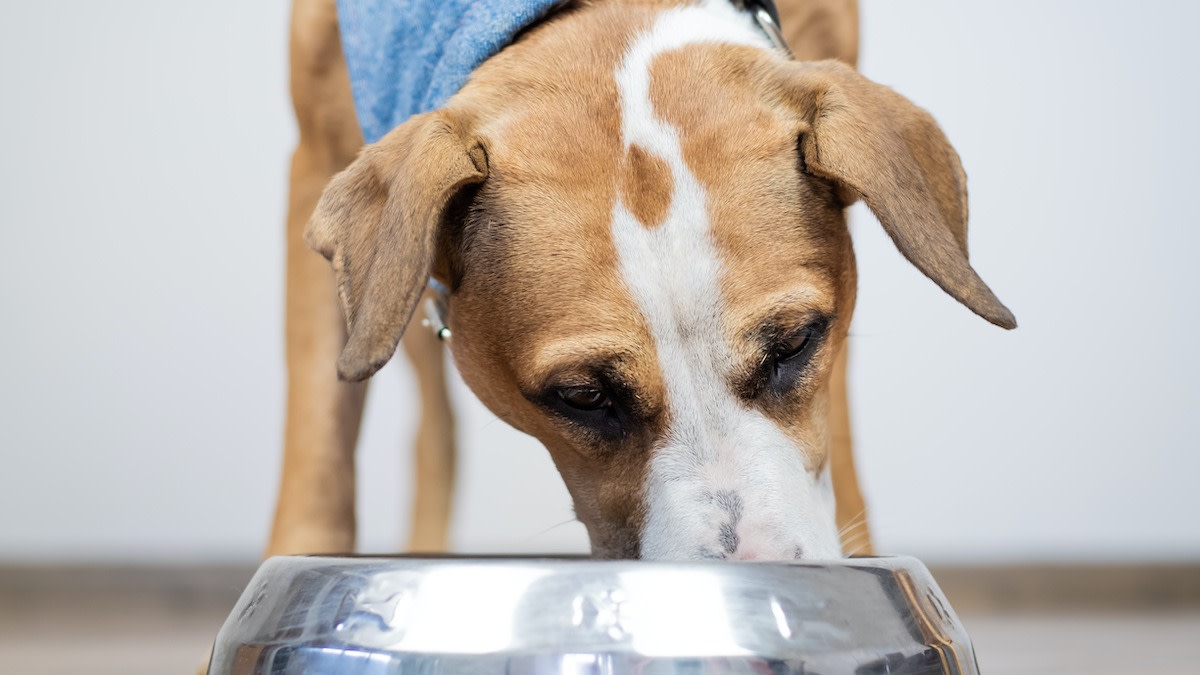Can Dogs Eat Almond Butter? 5 Tips for Dog-Safe Almond Butter
Written by MasterClass
Last updated: Mar 30, 2022 • 2 min read
Dogs can eat almond butter, but your pooch should only eat this high-fat human food in small quantities. Discover tips for offering almond butter to your furry friend.
Learn From the Best
Can Dogs Eat Almond Butter?
Dogs can eat almond butter in moderation if the mixture is free of added preservatives, salt, and sweeteners. Almonds are not a true nut but rather a member of the legume family; they are a rich source of vitamin B3, vitamin E, calcium, antioxidants, magnesium, and other vitamins and minerals that boost your dog’s immune system. Before you serve your dog almond butter, always read the ingredients list. Look for almond butter that contains only ground raw or roasted almonds, avoiding additives like salt, sugar, or the artificial sweetener xylitol, which is toxic to dogs.
Almond butter is one of several types of nut butters—such as all-natural peanut butter, cashew butter, and hazelnut butter—that are safe for dogs to consume. However, nut butters with harmful side effects for dogs include pistachio butter, pecan butter, walnut butter, and especially butter made with macadamia nuts, which are toxic to dogs.
5 Tips to Incorporate Almond Butter Into Your Dog’s Diet
While almond butter has several health benefits for dogs, pet parents should consider a few factors before adding it to their dog’s diet.
- 1. Avoid artificial sweeteners. Do not serve your pet almond butter or any kind of nut butter that contains xylitol. This sweetener causes a sudden decrease in canine blood sugar levels that can lead to life-threatening hypoglycemia, pancreatitis, or liver failure.
- 2. Keep portions small. While almond butter can be a nutritious occasional dog treat, it has a high fat content and can cause an upset stomach. Too much almond butter can lead to gastrointestinal distress and weight gain or obesity in dogs, so feed your dog almond butter in small quantities.
- 3. Look for simple recipes. Dog owners should look for almond butter without added sugars, salts, or preservatives if they plan to offer the butter as a treat or mix it into homemade dog food. Opt for organic, natural almond butter.
- 4. Make your own almond butter. If your dog likes the taste of almond butter, consider making your own creamy almond butter instead of buying it from the grocery store. You can control whether your homemade almond butter is free from sugars, sweeteners, and preservatives that might upset your dog’s stomach or cause other health issues.
- 5. Test your dog for allergies. Just as some dogs have peanut allergies, some dogs can have an allergic reaction to almond butter. To be extra cautious, test your pet for nut allergies at your vet before your dog eats almond butter for the first time.
Before Sharing With Your Pooch
Certain human foods can cause adverse reactions in canines, so always consult your veterinarian to determine whether it is safe to add these foods to your pet’s diet. This article is for educational and informational purposes and is not a substitute for medical or dietary advice.
Want to Learn More About Training the Goodest Boy or Girl?
Your dream of having a dog who understands words like “sit,” “stay,” “down,” and—crucially— “no” is just a MasterClass Annual Membership away. The only things you’ll need to train up a well-behaved pup are your laptop, a big bag of treats, and our exclusive instructional videos from superstar animal trainer Brandon McMillan.
